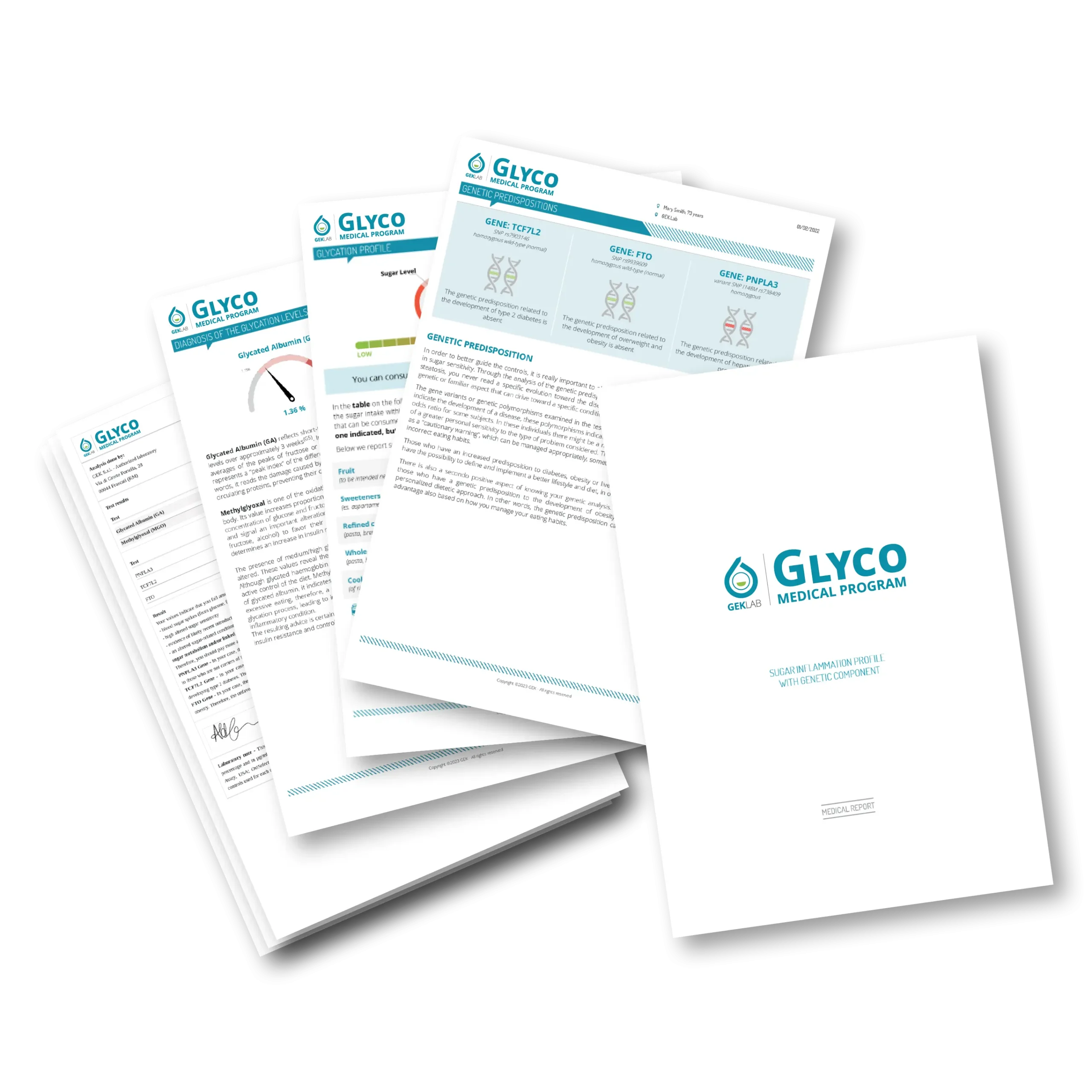
Over the decades, the perception of the effects of sugars on mental health has undergone a surprising evolution. In the past, sugar was often considered an ally of concentration and memory (some may recall an advertisement that declared “sugar has brainpower“). However, recent research has highlighted another side of the coin: the role of excessive sugar intake in promoting the onset of Alzheimer’s and cognitive decline.
Alzheimer’s disease, a form of progressive dementia, represents one of the most pressing challenges for global health. Alzheimer’s disease initially presents with mild memory loss and gradually progresses with cognitive difficulties, temporal and spatial disorientation, behavioral changes, loss of autonomy, and ultimately, sadly, the inability to recognize family and friends.
While this disease was once primarily attributed to genetic factors and aging, we now know that lifestyle and diet play a crucial role in its development
Glycation, the process by which excess sugars irreversibly bind to proteins or other biological compounds, facilitates the creation of beta-amyloid plaques, a protein whose accumulation is associated with Alzheimer’s.
Sugars: friends or foes of the brain?
Sugar, particularly glucose, one of the constituent molecules of sugars, plays a fundamental role in sustaining brain functions. The brain requires a constant supply of glucose for its energy metabolism and to fuel processes crucial for memory, learning, and other cognitive functions. Maintaining adequate levels of glucose in the blood is essential for proper brain function. However, it’s important to maintain a balance in its intake, avoiding excesses that could lead to serious health problems.
In addition to an increased risk of developing obesity and diabetes, recent studies have linked high consumption of simple sugars, such as fructose and glucose, to an increased likelihood of developing Alzheimer’s and cognitive decline. But what is the mechanism behind this connection?
The role of sugars in the onset of Alzheimer’s disease
One of the main factors is the chronic inflammation of brain tissues, known as neuroinflammation, which occurs in response to excessive consumption of sugars and related substances.
Glycation, the process by which excess sugars irreversibly bind to proteins or other biological compounds, facilitates the creation of beta-amyloid plaques, a protein whose accumulation is associated with Alzheimer’s. These deposits interfere with the transmission of nerve impulses between neurons and cause damage to brain tissues, facilitating the formation of those “neuronal tangles” that lead to cognitive impairment. The long-term effect of this process results in the memory alterations typical of this degenerative disease.
Furthermore, recent research (published in March 2022 in the Journal of Alzheimer’s Disease) explains that the protein Tau 181, one of the substances that promotes the deposition of beta-amyloid, is activated by methylglyoxal.
Methylglyoxal, or MGO, is a substance we often discuss. It’s one of the most potent and harmful oxidizing molecules, the level of which increases in relation to excessive consumption of sugars, complex carbohydrates, polyols (the most common sweeteners), and alcohol.
Lastly, high sugar consumption can lead to so-called cerebral insulin resistance, similar to what happens in type 2 diabetes. Insulin is essential for optimal brain function, as it regulates the availability of glucose and promotes synaptic plasticity, the key process for learning and memory. For this reason, Alzheimer’s disease is increasingly referred to as “Type 3 diabetes”.
But how much does genetic predisposition matter? Familial history of the disease does play a role, but as we often write, “your genes are not your destiny”: even a 2001 study in JAMA highlights how lifestyle and especially diet have a strong influence in this regard, potentially tripling the incidence of the disease in genetically predisposed groups.
What to do to prevent Alzheimer’s and cognitive decline
As explained, the presence of high levels of methylglyoxal in circulation can be considered a kind of alarm for the subsequent accumulation of amyloid and, consequently, for the development of Alzheimer’s.
Knowing one’s level of methylglyoxal and recognizing elevated levels of glycation in one’s body in advance allows each individual to promptly take preventive measures against neuronal degeneration, especially in the presence of a family history of the disease.
The Glyco Medical Program measures levels of Methylglyoxal and Glycated Albumin in circulation and provides an assessment of individual glycation profiles. The medical report provided with the report results allows for the establishment of a personalized nutritional program that adjusts the daily intake of sugar, alcohol, and fruit, with the aim of returning, if necessary, to a state of normality.
Prevention (also) begins on your plate
If MGO levels were found to be high, in addition to controlling daily sugar intake, you can also implement healthy nutritional practices:
- Consume foods rich in Omega-3 fatty acids (such as fatty fish, nuts, and flaxseeds), which provide key structural components to brain cells’ membranes.
- Consume foods rich in antioxidants, which counteract the oxidative stress caused by methylglyoxal, such as flavonoids that also improve blood flow to the brain (these are abundant in colorful fruits and vegetables and good quality dark chocolate, with 85% or higher cocoa content).
- Consume sources of magnesium, an essential mineral involved in nerve signal transmission. Magnesium-rich foods include nuts, seeds, legumes, dark leafy greens, dark chocolate, and fish.
Genetic factors and lifestyle
It’s recent news (and has been covered by major national newspapers) about the discovery of a particular genetic configuration that may protect against cognitive decline. Fibronectin is a protein that responds to inflammatory status by facilitating the deposition of amyloid substance and promoting Alzheimer’s development. Some individuals have a gene that prevents its deposition, playing a protective role against Alzheimer’s. This genetic variation would prevent the passage from the bloodstream to brain cells of substances that, under inflammatory stimuli, then aggregate abnormally, forming amyloid plaques.
While awaiting further confirmation of this discovery and its potential therapeutic implications, it’s crucial to maintain a healthy and mindful lifestyle that controls inflammation and glycation and reduces the risk of Alzheimer’s through diet, physical activity, and a daily life rich in intellectual and cognitive stimuli.
by the Scientific Editorial Team at GEK Lab





